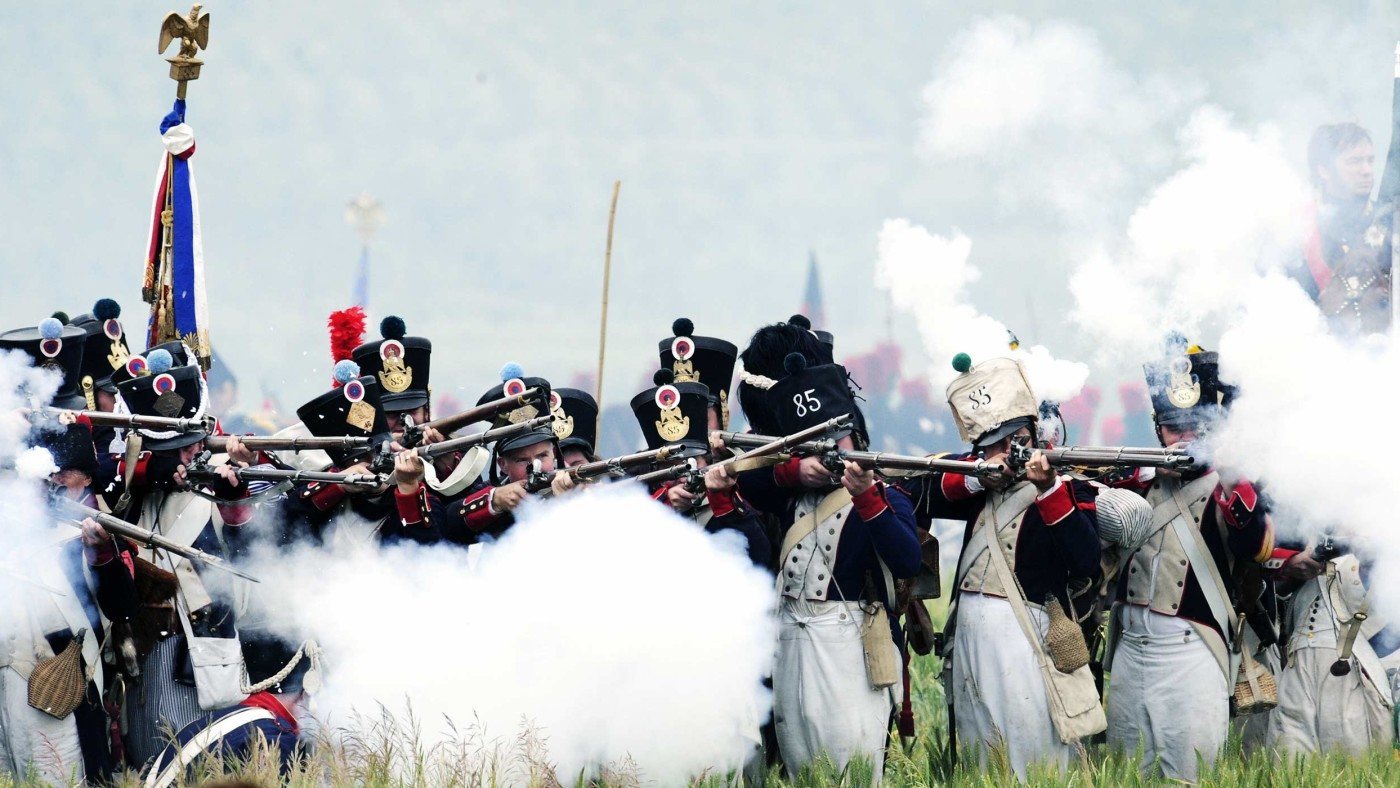‘I believe and confess that a people can value nothing more highly than the dignity and liberty of its existence,’ Carl von Clausewitz wrote to his patron and mentor, Count von Scharnhorst, when he resigned from the Prussian civil service in order to fight against Napoleon in 1812; ‘that we must defend these to the last drop of our blood; that there is no higher duty for fulfil, no higher law to obey; that the shameful blot of cowardly submission can never be erased.’
Today, of course, political priorities are very different; trade and economics have entirely taken the place of philosophical concepts such as ‘dignity and liberty’, sovereignty and national independence. Yet it is worth considering what would have happened if our forefathers had lived according to our own modern-day priorities rather than theirs.
In 1806, for example, Napoleon offered both Clausewitz’s Prussia and the recently-united Great Britain the opportunity to live in peace in a Europe dominated by him. Both would have been far better off financially and commercially had they accepted his offer of trade-for-peace. Both refused, and fought on regardless.
In a factory visit recently while campaigning for Britain to remain in the EU, David Cameron said: ‘Nothing is more important than protecting people’s financial security.’ If that had been the view of prime ministers such as William Pitt the Younger and Lord Liverpool, Britain would undoubtedly have accepted France’s repeated offers, made throughout the Napoleonic Wars, and sued for peace. Instead, because we refused, Napoleon set up the Continental System, a gigantic protectionist organization that cut Britain out of all European Trade for nearly a decade. It was disastrous for British trade in the short run, and of course there were those in the City of London, larger business corporations and amongst the Radical Whigs in parliament who clamoured for the British Government to capitulate to Napoleon, believing as they did that there was nothing more important than protecting people’s financial security.
Successive Tory governments, however, belied Napoleon’s sneer that Britain was merely ‘a nation of shopkeepers’. Instead they recognized that it was only by preserving national independence and sovereignty, and the supremacy of British laws that went with that, that national greatness could be pursued effectively in the long run. They were willing to absorb the disastrous short-term losses made by British trading companies – and even some serious runs on London’s banks in 1812-13 – in order to continue the struggle, which in 1815 came to a successful fruition with Napoleon’s defeat at the battle of Waterloo. They were patriots in the dictionary definition of the term as being ‘zealous of their country’s rights and liberties’, which makes no mention of their country’s GDP per capita, size of national debt or balances of trade.
If it turns out that Sir John Major, Michael Heseltine, Peter Mandelson and the other doom-sayers are right in predicting that Britain would be worse of if she left the European Union – and I do not for one moment believe they are – there are still some people in this country who would prefer to be poorer but free, as Britain was when fighting Napoleon, than better off but having their laws ultimately under the control of foreign jurists sitting in Strasbourg. The threats made by the doom-sayers that we will be punished by the European Union if we have the temerity to leave might be cowing our present-day generation, but they would have had absolutely nil purchase on the ordinary Britons of the past, although it is interesting how the people who wanted to surrender to Napoleon’s blandishments in 1806 were precisely the same kind of people who want to surrender to Brussels’ similar blackmail threats 210 years later. To set against Major, Heseltine, Mandelson, Ken Clarke, Roland Rudd et al, therefore, one can set William Pitt, Admiral Nelson, the Duke of Wellington and all the other heroes who didn’t fear being cut out of a European protectionist bloc, because they believed there were even higher duties of government than the (admittedly very important) one of protecting people’s financial security.


